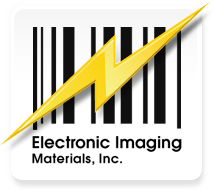RoHS and WEEE Directives

In an effort to reduce the use of hazardous materials in electronic equipment as well as encourage the recycling of products, the European Union restricts the use of Hazardous Substances (RoHS). They also created a directive on Waste Electrical and Electronic Equipment (WEEE).
Directive 2002/95/EC – RoHS
Restriction on the use of certain Hazardous Substances in electrical and electronic equipment.
Commonly referred to as the “Lead-Free” Directive or Initiative, RoHS* aims to eliminate the use of lead in wave solder alloys. Because of this, PCB manufacturers are turning to lead-free solders with higher temperatures. Electronic Imaging Materials, Inc. solves this requirement by offering Kapton® polyimides engineered to handle increased temperatures with less discoloring and label curl, and more chemical and solvent resistance.
The RoHS Directive actually pertains to six banned substances – not just lead. The ban also includes the use of cadmium, mercury, hexavalent chromium, polybrominated biphenyls (PBB) and polybrominated biphenyl ethers (PBDE).
To assure compliance, suppliers are requested to provide a formal Declaration that their products do not contain these hazardous materials. EIM helps our customers label their products and provide appropriate documentation. These declarations and associated analysis data are retained in a technical file for authorities to see during an inspection.
RoHS supports recycling by reducing the amount of hazardous chemicals used in production, reducing the risk of exposure and special handling requirements, as well as creating savings in recycling costs.
Directive 2002/96/EC – WEEE
Waste Electrical and Electronic Equipment Directive
WEEE minimizes the impact of electrical and electronic equipment on the environment as it is used and when it becomes waste. The WEEE:
- Sets criteria for the collection, treatment, recycling and recovery of electrical waste and equipment.
- Encourages designers to create products with recycling in mind.
- Makes producers (Manufacturers and Importers) responsible for financing most of these activities so private householders are able to return WEEE without charge.
*This Directive went into effect July 1, 2006 and affects goods made worldwide and distributed in Europe.
